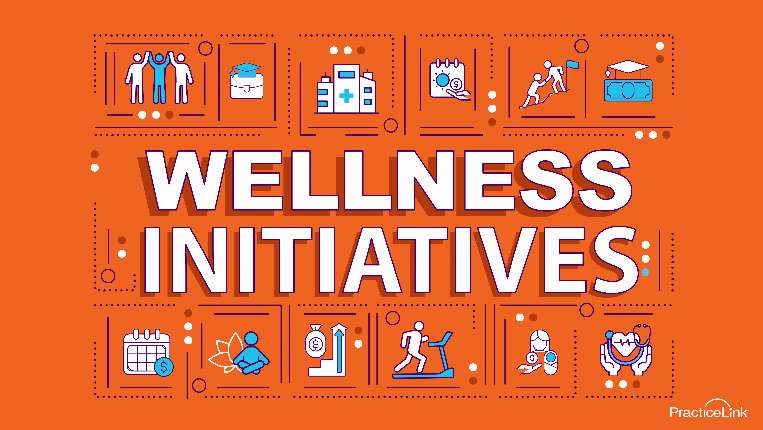Wellness initiatives for physicians
 Posted by Megan Trippi
Posted by Megan Trippi

Physicians dedicate their lives to the well-being of others. However, amidst the rigors of their noble profession, the importance of prioritizing their own wellness often takes a back seat. In recent years, there has been a growing recognition of the need for comprehensive wellness initiatives tailored specifically for physicians to positively impact the physician, retention, the organization and patient care.
So, what are these wellness initiatives for physicians and how do they benefit the provider and the organization?
Understanding physician burnout
Physicians operate in a high-stakes environment, where the weight of responsibility for patient outcomes can be overwhelming. The demanding nature of the profession, coupled with long working hours, emotional stress and the constant need to stay abreast of medical advancements, contributes to burnout. Burnout, characterized by emotional exhaustion, depersonalization and a diminished sense of personal accomplishment, has become an alarming epidemic in the medical community. It not only affects the mental and physical health of physicians but also compromises patient care and overall healthcare system efficiency.
Physician burnout and mental health
Physician burnout is closely linked to mental health challenges. The pressures of the profession often lead to anxiety and depression, and the stigma surrounding mental health issues within the medical community can deter physicians from seeking help. Wellness initiatives that foster an open and supportive culture around mental health are crucial in breaking down these barriers. Providing resources such as counseling services, peer support groups and mental health days can help physicians manage the emotional toll of their profession.
Work-life balance
The demanding schedules of physicians often leave little room for personal lives, leading to strained relationships and a lack of rejuvenating downtime. Wellness initiatives should focus on promoting work-life balance by implementing flexible scheduling, encouraging time off and discouraging excessive overtime. Research consistently shows physicians who achieve a healthy work-life balance are not only more satisfied with their careers but also provide better patient care.
Physical well-being
The physical demands of the medical profession cannot be understated. Long hours, irregular shifts and the stress of decision-making take a toll on a physician’s physical health. Initiatives that prioritize physical well-being, including fitness programs, nutrition education and preventive healthcare, contribute not only to the individual physician’s resilience but also to the overall efficiency of the healthcare system.
Professional development
Wellness initiatives should extend beyond addressing immediate health concerns. Continuous professional development opportunities, mentorship programs and initiatives that foster a sense of community within the workplace contribute to a more fulfilling professional life. Engaged and satisfied physicians are more likely to stay in the profession, reducing turnover rates and ensuring a stable and experienced healthcare workforce.
Patient care
Ultimately, the impact of physician wellness initiatives extends beyond the individual provider. A healthy and satisfied physician is better equipped to provide compassionate and high-quality patient care. Reduced burnout rates lead to decreased medical errors, improved patient satisfaction and a more resilient healthcare system that can effectively tackle the challenges of today and tomorrow.
The implementation of wellness initiatives tailored specifically for physicians is a necessity, not a luxury. Prioritizing the well-being of providers is an investment in the future of healthcare. It’s time to recognize the importance of nurturing the healers and ensure providers also receive the care they need.

